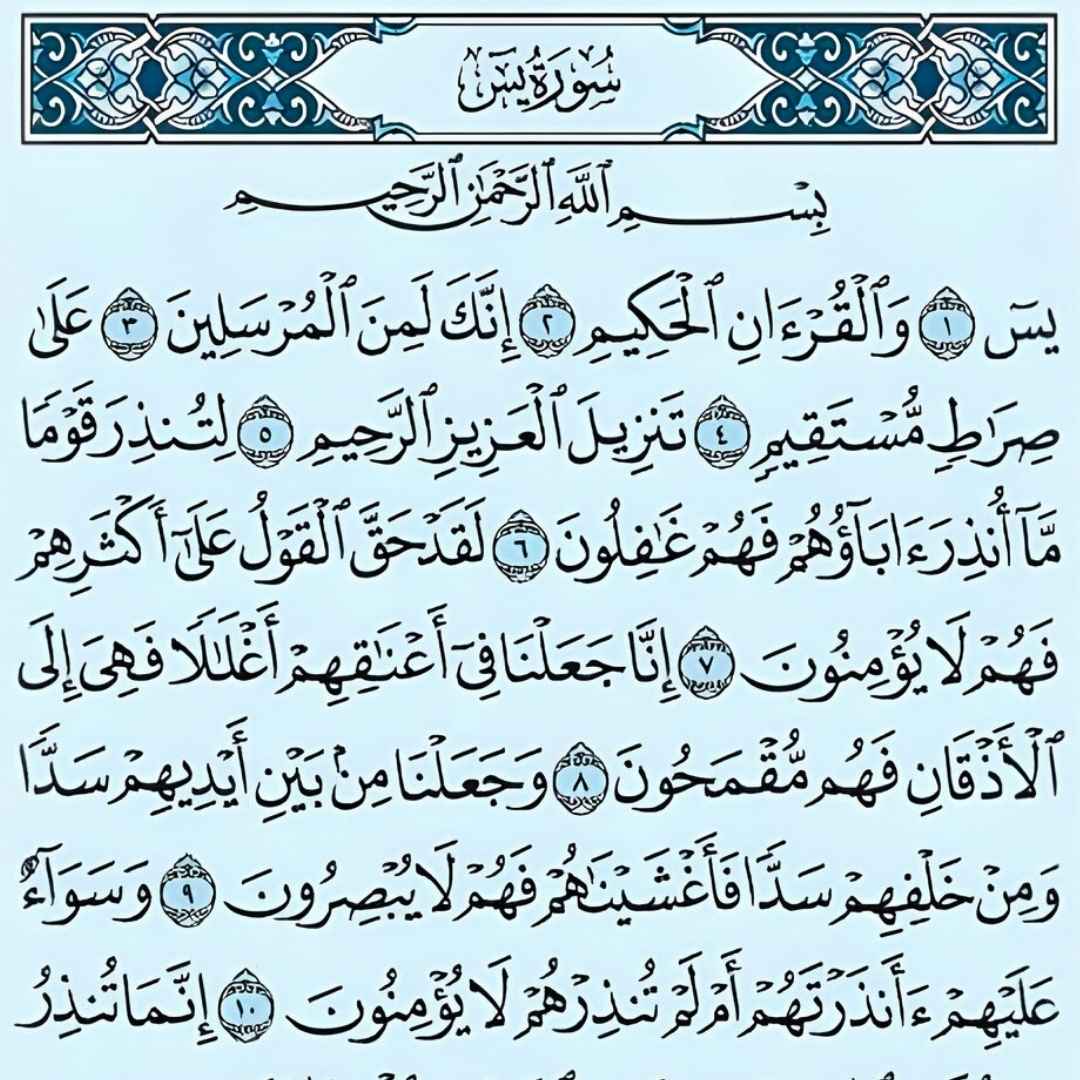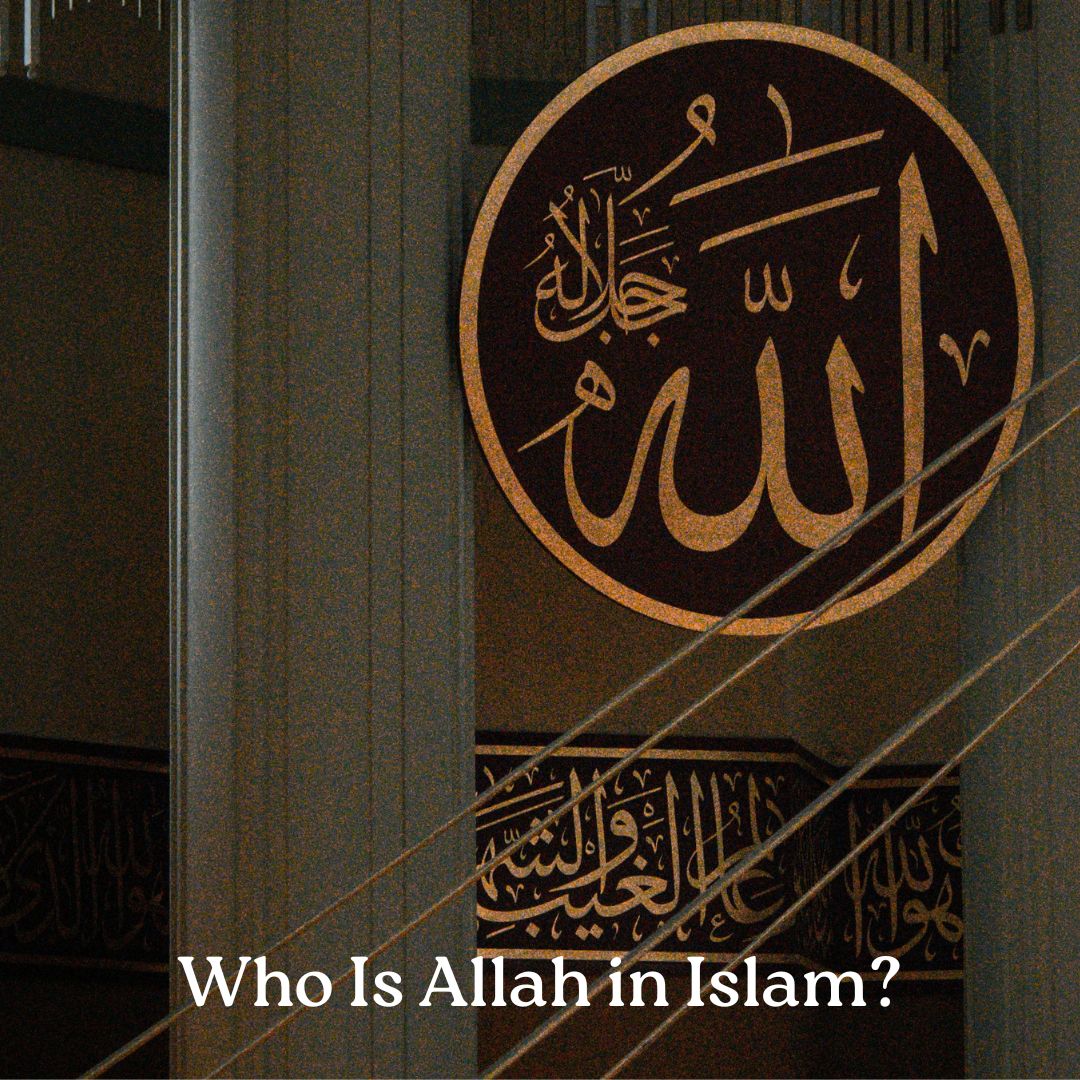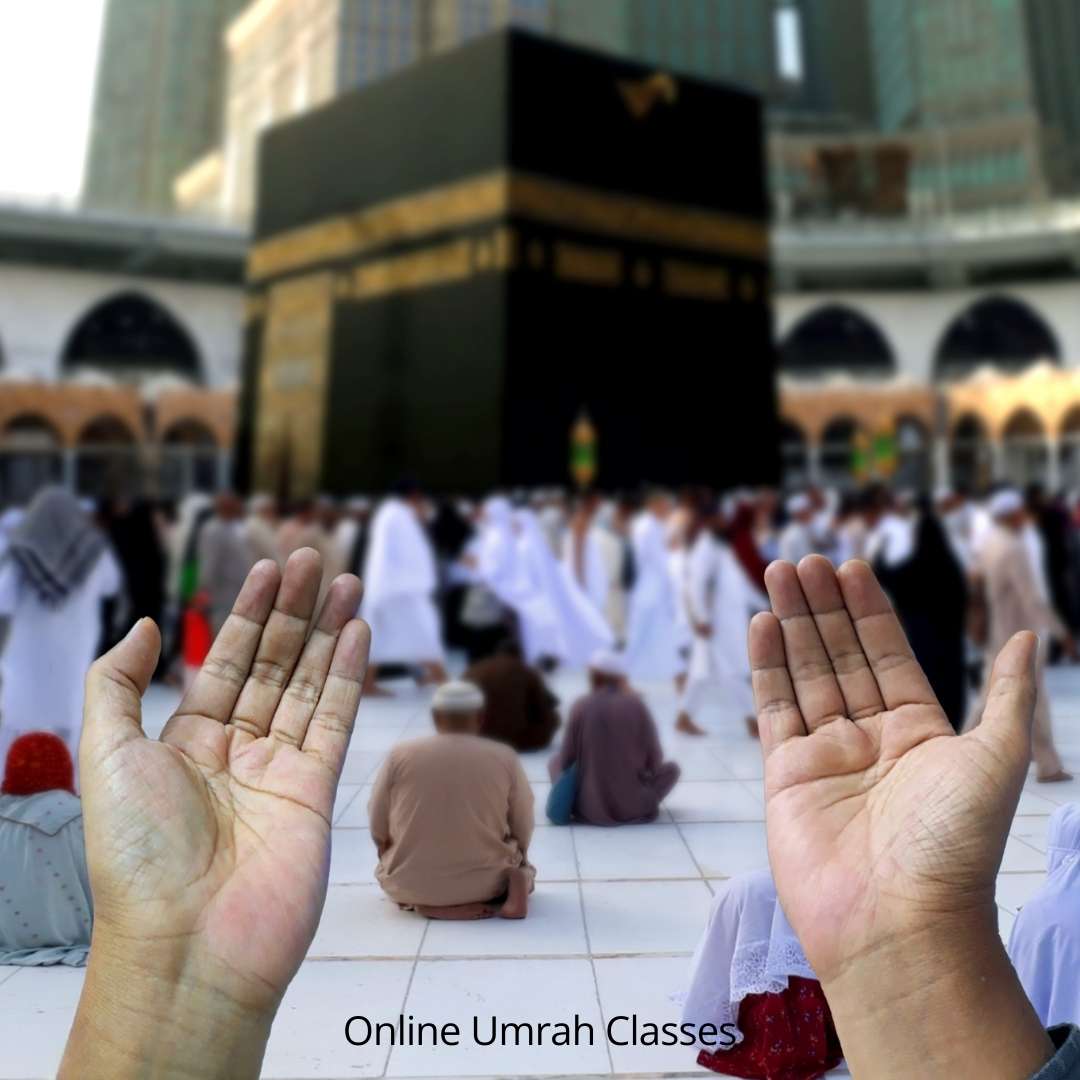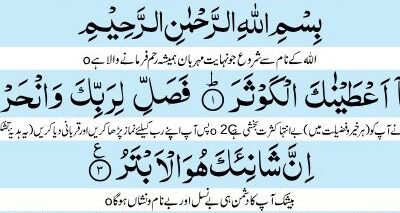Blog
Haunted House Cleaning Through Surah Yaseen

A haunted house refers to a place affected or occupied by jinns, satans, or evil spirits. Such places often carry an unsettling energy, strange sounds, or unusual occurrences that disturb the peace of those living there. In Islam, the existence of jinns is real and mentioned in the Quran. Sometimes, jinns choose to reside in a specific place because they like it, while in other cases, magicians or black magicians perform rituals and call satans to occupy that location. These acts turn peaceful places into haunted houses filled with spiritual negativity.
To spiritually cleanse such a place, reciting Surah Yaseen is one of the most effective and powerful remedies. Known as the “Heart of the Quran”, Surah Yaseen (Chapter 36) contains 83 verses filled with divine light, mercy, and protection. Through its recitation or continuous audio playback, one can purify the home, remove evil presences, and invite peace by the will of Allah Almighty.
Understanding a Haunted Place in Islam
A haunted place in Islamic understanding is a location where jinns or evil spirits reside, disturb, or influence human behavior. These entities may stay because they are attracted to the environment or because of sinful human activities performed there—such as shirk, black magic rituals, or the neglect of prayer. Sometimes, buried objects or magical charms (taweez) are placed under the ground, in walls, or in corners of a house by magicians to summon spirits.
Over time, this leads to negative energy, fear, and even spiritual possession of the residents. But Allah has given believers protection through the Holy Quran, especially through Surah Yaseen, Surah Al-Baqarah, Ayatul Kursi, and Surah Al-Jinn.
Common Signs and Symptoms of a Haunted House
If a home, building, or workplace is affected by jinns or satans, there are clear signs that can help identify it. Below are the common symptoms of a haunted house according to Islamic understanding and ruqyah experience:
- Hearing strange or whispering voices with no visible source.
- Seeing shadows or shapes moving across rooms or mirrors.
- Feeling fear or anxiety for no reason while inside the house.
- Objects moving from one place to another on their own.
- Smelling unusual fragrances or bad odors that appear and vanish suddenly.
- Hearing footsteps or banging sounds, especially at night.
- Feeling pressure or heaviness on the shoulders when entering the house.
- Experiencing difficulty performing Salah (prayers) inside.
- Feeling short of breath or heavy breathing due to unseen energy.
- Family members fighting often or developing sudden anger or sadness.
- Marks or stains (red, black, or unknown) appearing on furniture or clothes.
- Seeing footprints of strange shapes, like those of children or animals.
- Feeling watched or followed by an unseen presence.
- Mirrors changing shapes or reflections appearing differently.
These signs usually confirm that the place has spiritual disturbances or jinn influence. Ignoring these symptoms can lead to mental distress, health issues, or spiritual weakness in the family.
How to Cleanse a Haunted House with Surah Yaseen
The spiritual cleaning of a haunted house through Surah Yaseen is a simple yet powerful Islamic method. When the Quran is recited in a home, the light (noor) of Allah spreads, and all negative entities flee. Surah Yaseen holds a special position among all surahs, and it is known to remove spiritual darkness, black magic effects, and evil spirits.
Steps to Perform Surah Yaseen Cleansing (Ruqyah Method):
- Make Intention (Niyyah):
Begin with pure intention to seek Allah’s help for cleansing your home from jinns, satans, and black magic. - Perform Wudu (Ablution):
The person reciting Surah Yaseen should be in a state of purity. - Recite Surah Yaseen Loudly:
Sit inside the house and recite Surah Yaseen (Chapter 36) in a clear voice.
You may recite it in every room if possible. - Play Surah Yaseen Audio Daily:
If you cannot recite, play Surah Yaseen audio continuously in the house, especially after Fajr or Maghrib prayer.
The continuous recitation will repel jinns and evil forces. - Use Zamzam Water or Ruqyah Water:
After reciting Surah Yaseen, blow gently on water (Zamzam or clean water) and sprinkle it in all corners of the house. - Burn Oud or Islamic Bakhoor:
Fragrant incense or oud cleanses the air and environment, as jinns dislike pleasant smells with Quranic recitation. - Repeat for 7 Days:
Continue this spiritual cleaning process for 7 days regularly. Within this time, peace and calmness will return, Insha’Allah.
Why Surah Yaseen is Powerful for Ruqyah and House Protection
Surah Yaseen is often referred to as the heart of the Quran because of its deep spiritual energy. It contains verses that confirm Allah’s absolute power, the reality of the unseen world, and the eternal truth of faith.
When Surah Yaseen is recited, it invites angels and drives away devils. According to Islamic scholars and ruqyah practitioners, the light of Surah Yaseen purifies the home’s atmosphere, removes sadness, anxiety, and negativity, and restores spiritual protection around the family.
Even listening to Surah Yaseen regularly brings tranquility (sakeenah) and rahmah (mercy) into the house.
Spiritual Tips for Keeping Your House Protected
To keep your home protected from evil spirits even after cleansing:
- Recite Surah Al-Baqarah once every 3 days.
- Pray five times daily and avoid listening to loud or sinful music in the house.
- Keep the name of Allah and Quranic verses displayed respectfully in your home.
- Do not keep photographs or idols that may invite jinns or satans.
- Always say “Bismillah” when entering or leaving the house.
By adopting these Islamic practices, your house will remain filled with light, peace, and divine protection.
Conclusion
The best Islamic ruqyah for cleansing a haunted house is the recitation or listening of Surah Yaseen. It removes jinns, satans, and all forms of evil influence. The words of Allah are powerful, and when recited with sincerity and belief, no evil can stay.
If you or your family are experiencing any of the symptoms mentioned, start playing Surah Yaseen daily. Within days, you will feel a spiritual change — peace, calm, and blessings will fill your home again, Insha’Allah.
Blog
Who Is Allah in Islam?

The question “Who is Allah in Islam?” is one of the most important and fundamental questions a human being can ask. Islam teaches that understanding Allah is the foundation of faith, the starting point of guidance, and the purpose of human existence.
In Islam, Allah is the One, Absolute, and Eternal God, the Creator of everything that exists. He is not exclusive to a particular nation, race, or language. Allah is the same God worshipped by Adam, Noah, Abraham, Moses, and Jesus (peace be upon them all), and His final revelation is the Qur’an.
Allah declares in the Qur’an:
“Indeed, I am Allah. There is no deity except Me, so worship Me.”
(Surah Taha 20:14)
To understand Islam correctly, one must first understand who Allah is, how He describes Himself, and what He asks from humanity.
The Meaning of the Word “Allah”
The word Allah is an Arabic term meaning “The One and Only True God”. It is not the name of a separate or new deity. It is linguistically derived from Al-Ilah, meaning “The God”, signifying absolute uniqueness.
Allah is not:
- A human
- A spirit inside creation
- A symbol or abstract force
- Limited by time or space
The Qur’an makes this clear:
“There is nothing like unto Him.”
(Surah Ash-Shura 42:11)
Allah is beyond comparison, beyond imagination, and beyond physical form.
Allah Is One: The Concept of Tawheed
What Is Tawheed?
Tawheed is the core belief in Islam — the absolute Oneness of Allah. It means that Allah is One in:
- His Lordship
- His right to be worshipped
- His names and attributes
Allah states:
“Your God is One God. There is no deity except Him, the Most Merciful, the Most Compassionate.”
(Surah Al-Baqarah 2:163)
This Oneness is not numerical only; it is absolute uniqueness. Allah has no partners, no equals, and no rivals.
Allah Is the Creator of Everything
Islam teaches that Allah alone created the universe, life, and everything within existence.
“Allah is the Creator of all things, and He is the Disposer of affairs.”
(Surah Az-Zumar 39:62)
Nothing exists independently of Allah. Every atom, galaxy, and soul exists by His will and knowledge.
“He created the heavens and the earth in truth.”
(Surah An-Nahl 16:3)
Creation itself is a sign pointing toward Allah.
Allah Is Eternal and Self-Sustaining
Allah has no beginning and no end. He does not depend on creation, while all creation depends on Him.
This reality is summarized powerfully in the Qur’an:
“Allah, the Eternal Refuge. He neither begets nor is born.”
(Surah Al-Ikhlas 112:2–3)
Allah is not subject to birth, death, aging, or decay. Time does not affect Him.
Allah Is Not Like His Creation
Islam strongly rejects any attempt to humanize Allah or liken Him to created beings.
“Vision perceives Him not, but He perceives all vision.”
(Surah Al-An’am 6:103)
Allah does not have:
- Physical form
- Gender
- Parents or children
- Weakness or limitation
The Qur’an declares:
“There is none comparable to Him.”
(Surah Al-Ikhlas 112:4)
The Names and Attributes of Allah
Allah has revealed His beautiful names and attributes so humans can know Him correctly — without distortion or imagination.
“And to Allah belong the Most Beautiful Names, so call upon Him by them.”
(Surah Al-A’raf 7:180)
Some of Allah’s attributes mentioned in the Qur’an include:
- Ar-Rahman – The Most Merciful
- Ar-Raheem – The Most Compassionate
- Al-‘Aleem – The All-Knowing
- Al-Qadeer – The All-Powerful
- Al-Hakeem – The All-Wise
- As-Samee’ – The All-Hearing
- Al-Baseer – The All-Seeing
Allah’s mercy is emphasized repeatedly:
“My mercy encompasses all things.”
(Surah Al-A’raf 7:156)
Allah Is All-Knowing
Allah’s knowledge is complete and perfect. He knows:
- The past, present, and future
- What is visible and hidden
- What is in the hearts of people
“Indeed, Allah is Knowing of all things.”
(Surah Al-Baqarah 2:231)
Nothing escapes His awareness:
“Not even the weight of an atom escapes Him.”
(Surah Saba 34:3)
Allah Is Most Merciful and Forgiving
One of the most repeated themes in the Qur’an is Allah’s mercy.
“Your Lord has decreed mercy upon Himself.”
(Surah Al-An’am 6:54)
Allah invites people to repentance, regardless of their past:
“Do not despair of the mercy of Allah.”
(Surah Az-Zumar 39:53)
In Islam, Allah is not distant or unreachable. He is near, responsive, and forgiving.
Allah Is Just and Fair
Allah is perfectly just. He never wrongs anyone.
“Allah does not wrong even the weight of an atom.”
(Surah An-Nisa 4:40)
Every soul will be judged fairly:
“And We will set up the scales of justice on the Day of Resurrection.”
(Surah Al-Anbiya 21:47)
Justice in Islam begins with Allah Himself.
Allah Is the Only One Worthy of Worship
Islam teaches that worship belongs exclusively to Allah.
“You alone we worship, and You alone we ask for help.”
(Surah Al-Fatihah 1:5)
Direct worship of Allah includes:
- Prayer
- Supplication
- Trust
- Love
- Fear
- Hope
Associating partners with Allah is strictly forbidden:
“Indeed, associating others with Allah is a great injustice.”
(Surah Luqman 31:13)
Allah Sent Guidance to Humanity
Allah did not leave humanity without direction. He sent guidance through revelation.
“We sent messengers as bringers of good news and warners.”
(Surah An-Nisa 4:165)
The final and preserved guidance is the Qur’an:
“This Qur’an guides to what is most upright.”
(Surah Al-Isra 17:9)
Allah and the Purpose of Human Life
According to Islam, the purpose of life is clear:
“I did not create jinn and mankind except to worship Me.”
(Surah Adh-Dhariyat 51:56)
Worship in Islam is not limited to rituals; it includes living ethically, justly, and responsibly according to Allah’s guidance.
Allah and the Hereafter
Belief in Allah includes belief in accountability after death.
“Every soul will taste death, then to Us you will be returned.”
(Surah Al-Ankabut 29:57)
Allah promises reward for righteousness and justice for wrongdoing:
“Whoever does good will see it, and whoever does evil will see it.”
(Surah Az-Zalzalah 99:7–8)
Allah Is Near to His Servants
Allah is not distant or detached.
“And when My servants ask you concerning Me, indeed I am near.”
(Surah Al-Baqarah 2:186)
Allah hears every prayer, even those whispered silently.
Common Misconceptions About Allah in Islam
- Allah is not exclusive to Arabs
- Allah is not a “different god”
- Allah is not harsh or unjust
- Allah does not need intermediaries
Islam teaches a direct relationship between the human being and Allah.
Why Knowing Allah Is Central to Islam
Knowing Allah leads to:
- Inner peace
- Moral clarity
- Purposeful living
- Hope and patience
- Accountability and humility
“Those who believe and whose hearts find rest in the remembrance of Allah.”
(Surah Ar-Ra’d 13:28)
Conclusion: Who Is Allah in Islam?
Allah in Islam is the One, Eternal, All-Powerful, All-Knowing, and Most Merciful Creator, worthy of worship alone, who guides humanity through revelation and judges with perfect justice.
Knowing Allah is the beginning of guidance and the key to success in this life and the Hereafter.
Blog
Top Benefits of Taking an Online Umrah Course Before Your Pilgrimage

Performing Umrah is a life-changing experience, but it’s also one that requires proper understanding and preparation. Many first-time pilgrims struggle with the rituals, duas, and logistics involved in this sacred journey. Enrolling in an online Umrah course before traveling ensures that every step of your pilgrimage is performed with confidence, clarity, and spiritual depth.
The Importance of Learning Before Performing Umrah
While Umrah is not as extensive as Hajj, it still holds immense spiritual value and specific rituals that must be performed correctly. Learning through umrah classes beforehand helps pilgrims understand:
- The step-by-step process of Umrah rituals
- The significance behind each act of worship
- Common mistakes to avoid during the journey
By studying these aspects early, pilgrims can focus more on worship and reflection rather than confusion or uncertainty once they arrive in Makkah.
Why Choose Online Umrah Courses
- Comprehensive Step-by-Step Guidance:
Online Umrah courses offer detailed lessons explaining every stage of the pilgrimage from Ihram to Tawaf, Sa’i, and shaving or trimming the hair. Visual guides and practical demonstrations make learning easier than reading from a book alone.
- Flexibility and Convenience:
With umrah courses online, you can learn at your own pace from anywhere in the world. Recorded lectures and mobile access make it possible to study between work or family responsibilities.
- Qualified Scholars and Instructors:
Online Umrah training is led by experienced scholars who ensure every teaching aligns with authentic sources from the Quran and Sunnah.
- Ideal for Individuals and Families:
Families can learn together, making it a shared spiritual preparation. Parents can also help children understand the values of the pilgrimage before traveling.
- Practical and Spiritual Preparation:
Many courses go beyond rituals to include practical travel advice such as managing Ihram, packing essentials, and understanding cultural etiquette all designed to make the pilgrimage more organized and fulfilling.
What You’ll Learn in an Online Umrah Course
- Meaning and purpose of Umrah
- Step-by-step rituals and their significance
- Required intentions (niyyah) and supplications (duas)
- Rules of Ihram and prohibited actions
- Common errors and how to avoid them
- Reflection and mindfulness during the journey
Spiritual Benefits of Pre-Umrah Education
Learning about Umrah before traveling ensures your heart is prepared for worship. Instead of focusing on logistics or rituals during the pilgrimage, you’ll be able to concentrate on reflection and dua. A strong foundation of knowledge enhances humility, patience, and connection with Allah throughout the journey.
How Online Learning Elevates the Experience
Modern technology allows Muslims to gain authentic knowledge regardless of their location. By studying through an online Umrah course, learners combine the convenience of e-learning with the timeless spirituality of the pilgrimage. Recorded sessions, visuals, and quizzes make it easy to remember each ritual and perform them with perfection.
Conclusion
Preparing with an umrah course online ensures your pilgrimage is guided by knowledge and devotion. By understanding each step beforehand, you’ll perform Umrah with confidence, avoid common mistakes, and experience a deeper spiritual connection.
Start your preparation today through trusted online Umrah classes and step into your sacred journey with full awareness and peace.
Blog
6 Types of Umrah Deals to Consider for Your 2026 Pilgrimage

Umrah is a spiritual pilgrimage to the House of Allah Almighty and is a dream of every single Muslim living on this planet. If you are someone who is looking for Umrah Packages to embark on this sacred voyage in the coming year, you are at the right place. We will help you discover some types of Umrah deals that can facilitate your journey to make it more fulfilling. Whether you are seeking a budget-friendly way of completing this sunnah or you want to prioritise comfort over savings, this write-up has covered everything for you. Let us not take up more of your time anymore and jump directly into it!
1. Budget Umrah Packages
Many people think that they cannot visit the holy cities of Makkah and Madinah just because it might drain their bank account. But no more worries as budget packages are here for the rescue. This is because these Umrah offers are specifically designed to facilitate those who seek an affordable way to fulfil the rituals of tawaf and sa’i. We suggest exploring these deals for a pocket-friendly travel.
If we talk about its amenities, then you can get a hotel for your residence that is equipped with all the basic necessities important for your stay. Pilgrims get to stay in a 3-star property that might not be within walking distance from the Haram. But this is not something to be worried about, as you can also get a shuttle service that is responsible for taking you from your hotel to the Haram and vice versa. There is a high chance that you will get discounts on booking early, so avail this opportunity.
2. 5-Star Luxury Umrah Packages
This option is best for those who are looking for a premium experience throughout their stay in Saudi Arabia. These deals offer a more seamless experience compared to the Affordable Umrah Packages 2026 and align with your comfort demands. First of all, your stay is elevated by their premium hotels and high-end amenities. Pilgrims get to live close to the House of Allah Almighty and they can also witness the stunning view of the Kaaba from their room’s window. Another impressive thing is that you have access to private air-conditioned transport that can take you anywhere in the city.
Those who are coming with families and have a sufficient budget should search for 5-star luxury packages to make their Umrah unforgettable. You can get exclusive access to the upgraded meals and faster check-ins. Besides, personal assistance makes it super helpful for first-timers to fulfil their Umrah. Elderly pilgrims can get maximum convenience due to many reasons. Some of those include diet-conscious meals and a special seat in the car for the physically challenged people like disabled ones. The prices are quite high but optimum comfort and ultimate ease make every penny worth it.
3. Group Umrah Packages
Group Umrah packages allow you to travel with ease under the guidance of an expert leader. This one is perfect for those who are intending to perform Umrah for the very first time. They can look up to those who have previously performed this sunnah and learn from their experiences. This way, they can also interact with people of different backgrounds and customs, which makes them learn a lot about the outside world. Pilgrims need to follow a fixed schedule that frees them from the worry of arranging everything on their own.
On top of that, it also provides a company of fellow pilgrims, but it also saves a bunch of money. This is because you get to share transport and rooms, which distributes the money among the individuals. Not only this, but it also included Islamic sessions and expert-guided ziyarat tours. Hence, these deals are perfect for those who require step-by-step guidance throughout their stay.
4. Packages for Peak Season
Peak season is that period in which the House of Allah Almighty is the most occupied with devotees. For instance, majority of people travel to Saudi Arabia during the school holidays and most importantly, the holy month of Ramadan. Hence, peak season packages like Ramadan Umrah Deals, are designed to support your pilgrimage during this season. These types of Umrah offers are favourite among those who wish to perform the sacred rituals in the holy month of Ramadan. An ocean of devotees travels from all over the world to Saudi Arabia in the same month when Allah Almighty sent His final word on Earth. Most of them are all-inclusive packages that are tailored for Ramadan-specific travel. It assures a peaceful voyage to the holy cities during this peak season. A good thing is that you can choose a Ramadan deal from a number of price ranges and select the one that suits you.
Pilgrims get a handful of benefits and amenities, such as iftar and suhoor arrangements in their hotel or at some outdoor location. Devotees get to stay closer to the sacred mosques in Makkah and Madinah which makes it easy to pray in them. One thing that you should keep in mind is that millions of people head over to Makkah and Madinah during this holy month so there is a significant boost in the prices of hotels, transport and respective deals. It is thus better to opt for the early booking so you can get maximum amenities and rewards at a comparatively lower price.
5. Packages for Off-Peak Season
Off-peak season deals are a great choice for pilgrims who want a fully peaceful journey. These deals are offered in months when the crowd is low. For example, you can find good Umrah offers in September or October. Pilgrims can get easy access to divine sites and enjoy a calm environment. The good news is that a low travel demand in this season allows you to have this divine experience at a pocket-friendly rate. This makes it super easier for families and students to plan their trip. Pilgrims also get better hotel options because there is less rush.
Off-peak deals are mostly available in months that do not include Ramadan or school holidays. Moreover, several travel agencies offer flexible plans in these months. You can choose packages that match your needs and comfort demands. Devotees can even find special winter Umrah deals in November or early December. Such packages thus offer help you focus on your worship and are best for making your journey completely hassle-free right from the start to end.
Wrap Up
If you have reached the end of this blog, you are now aware of the main types of Umrah packages that you can opt for your travel to Makkah next year. We suggest performing a close inspection of the above-mentioned options before making a final decision. You can select the one depending on your comfort demands and the money in your bank account. Whatever the case is, choose Muslims Holy Travel for a meaningful and carefree Umrah journey.
-

 Blog1 year ago
Blog1 year agoSurah Muzammil
-

 Blog9 months ago
Blog9 months agoSurah Yaseen
-

 Blog11 months ago
Blog11 months agoSurah Nasr
-

 Blog12 months ago
Blog12 months agoSurah Yaseen: The Heart of the Quran and Its Blessings
-

 Blog1 year ago
Blog1 year agoNazar Ki Dua
-

 Dua10 months ago
Dua10 months agoDua for Protection, Powerful Islamic Prayers for Daily Safety from Enemies and Evil
-

 Blog9 months ago
Blog9 months agoNazar Ki Dua by Prophet ﷺ
-

 Quran8 months ago
Quran8 months agoSurah Kausar
